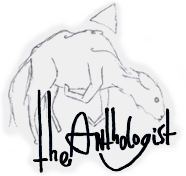In the afternoon rays of sunlight
Aquamarine days
Flickered to disappear
Between the branches of trees
Can you take my hand? I long for yours
I’m still bewildered
By the commotion of my pounding heart
Even the ashen crescent moon is waxing ²
Any percentage of you is okay —
I want to know you better, so let’s run away
Rather than be betrayed by how far this tone of grief will go
I want to turn traitor
Can you hear my voice? Doesn’t seem like it
With the night I’ll take you along, carry you away ³
Bitterness will turn to acidity — Fasten tight
The process of getting to know you better is beautiful
Any percentage of you is okay
I love misery EYE ⁴
Can you take my hand? I long for yours
I’m still bewildered
By the commotion of my pounding heart
Even the ashen crescent moon is waxing ²
Any percentage of you is okay —
I want to know you better, so let’s run away
.
NOTES / INTERPRETATION:
Blue font indicates text originally written in English in the official booklet.
oo1. Though it isn’t written in the booklet, Nao gives a spoken four-count to start the song. Interestingly, there is a matching four-count in the first “full” track on the album (kakumei kaika-Revolutionary Blooming-), also given by Nao… but that one is just the clacking of drumsticks. Saga explained in a tweet that his intention in having Nao start out the song was both a nod to Nao’s fans and a desire to make Everlasting a song that would elicit a smile from all listeners.
oo2. The adjective used for the moon here can mean either ‘grey’ or ‘ashen’. I chose to translate it as ‘ashen’ to give it a slightly stronger negative connotation. If you know your ALICE NINE. symbolism, then you know that in the previous album, PLANET NINE, the crescent moon was a prominent symbol; marked by grief to a certain extent (for a better idea of what I mean, take a look at the lyrics for UNREAL). Here, the crescent moon is waxing, the way it should; the lyrics here express that that natural process happening was something unexpected and positive.
oo3. This was the trickiest line to try and translate. I am still not certain that I got the interpretation right. But to paraphrase a little, the night itself is the speaker’s accomplice, and the loved one being referred to will be carried off in some way. The normal construction of the verb for “take along” seems to have been replaced with the second verb for “carry away”, to create a novel compound verb. That’s the impression I got, anyway; otherwise, the first verb was just poetically truncated, and we have two separate verbs. Either way, the translation I went with serves well enough! The connotations of both verbs are interesting: for “take along”, there is sometimes a negative (unwilling/unwitting) connotation; for “carry away”, the root verb gives us the imagery of robbery or stealing something away. So it fits nicely with the previous lines about turning traitor to avoid betrayal. But most interesting of all is that, despite all of these negative-sounding connotations, this song and its lyrics are very positive. That contrast creates an air of delighted mischief, especially with the addition of the buoyant music.
oo4. This is one of the most interesting lines in the entirety of the album, precisely because it leaves a lot open to interpretation, and to the imagination; it is pure wordplay. I’m particularly delighted by it and have given it a lot of thought. I chose to give it a very straightforward translation, but let’s break the line down here. The original Japanese reads “I ai ai AI”. That is “I”, “Love”, “Misery” “EYE”. The last part, “AI” is pronounced the same as all the words that come before it, but despite the way that it’s pronounced, the way that it’s written could also be read as the acronym for “artificial intelligence”. Of course is is also the romanized spelling for the two Japanese words (“ai” – love, misery) that precede it. But more importantly (and what informed my translation is), there is an English loan-word for “eye” in Japanese, romanized as “AI”.
All four words are pronounced in the same way, but have drastically different meanings. However, if you are a native speaker of Japanese, hearing the sound “ai” will almost certainly make you think of the word “love” before any other meaning. Even if you know very little Japanese, that is probably one word you are familiar with! So without reading the lyrics, a listener would probably assume the word “love” was being repeated 4 times.
The way that it is written has a sense of symmetry to it; on each end, there is a word written in English, seemingly, while in the middle there are kanji. Given that this album was meant to honor ALICE NINE.’s original intent to blend eastern and western styles, this line is particularly clever.
As for what it means… I have my own ideas. I leave it up to you to form your own 🙂
.
アリス九號. ★ ALICE NINE.
Everlasting
不夜城エデン (2020)
Lyrics by 将/Shou
Music by 将/Shou
Original text translated from Japanese.
Listen on your preferred digital platform.
If you’d like to share the translation, please link to this page; you can also find the translation posted as a comment to the official Youtube video. Do not repost it. Thank you ♡

